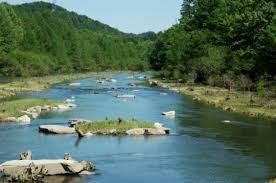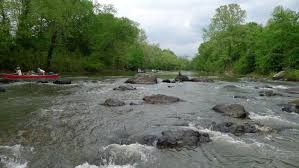
A water bill that environmentalists said will protect Oklahoma’s Scenic Rivers from drying up from overdevelopment and excessive use won support this week in an Oklahoma Senate Committee.
House Bill 1403 by Rep. Justin Humphrey of Lane and Sen. David Bullard of Durant won approval on a 17-1 vote and was sent to the full Senate for a vote. The measure already had been approved in the State House on a 75-20 vote in March.
The measure would direct the Oklahoma Water Resources Board to monitor in stream flow of rivers and streams.
“This group is still unable to properly protect our Scenic Rivers and treasured streams without the authority to pursue the studies that are deemed necessary,” argued the Oklahoma Chapter of the Sierra Club in email messages to Senators on the committee. “Please also know that these inflow stream studies will not take away existing city or municipal water rights. The purpose of the studies is to make sure that future water rights are not over prescribed, so that our rivers can sustain themselves long term.”

The group said the fiscal impact would be $70,000 and not a higher amount as some have claimed. It pointed out that Oklahoma is the only state in the U.S. that does not protect its scenic rivers and streams from drying out due to excessive use.
The bill earlier had won approval in the Senate Energy Committee on a 9-3 vote. But it was then redirected to the Senate Appropriations Committee where approval came just before the legislative deadline for bills to be voted on by House and Senate committees.
The bill would call for a study of the amount of water flowing into any stream or river in order to protect and conserve the water resources.
One of the purposes, as stated in the bill is to “reduce the amount of water available for permitting from each treasured stream by an amount equal to its respective instream flow determination.” Two treasured stream committees would be created,one for Northeastern Oklahoma and another for Southeastern Oklahoma.
The bill would allow the state to reduce the amount of water available if the amount flowing into the river or stream doesn’t match the amount flowing out.
The measure was amended in committee to make sure Oklahoma City’s 2016 contracts to obtain water from the Choctaw and Chickasaw Nations is not affected by the study.






